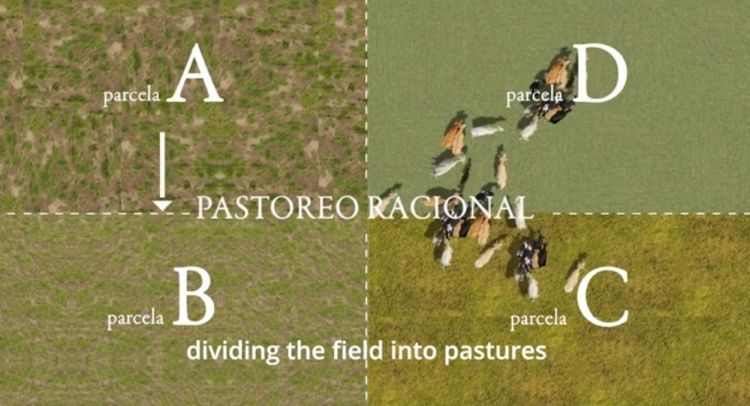For a few years now, meat consumption has been under attack for ethical, sustainability and health reasons. Pablo Rivero, patròn at Don Julio Parilla in Buenos Aires, best restaurant in 50Best Latin America (we wrote about it here) and 13th in the World's 50Best presented a few weeks ago, does not agree. He tells us a different story, that debunks the dominating view through facts, data and examples.
Demonising meat, according to Rivero, is a conceptual mistake: what must be demonised is the industrialisation process of meat production, that is to say the passage from extensive farming to feedlot. It's intensive farming that is responsible for all the bad that is mistakenly ascribed to meat per se: the high levels of CO2 emissions in the atmosphere, the waste (bad management) of precious resources like water, the meagre and immoral life conditions of the animals, the poisoning of meat and the consequent issues for people's health and the planet's health too. All this, for food of the lowest standards.
«Cows, like anything else, can make a catastrophe or a fortune: it depends on how you manage them». So the point is not what, but how.
We had already heard a similar statement from another Argentinian at the top of the world: Mauro Colagreco. With his project CARNE, the three-starred chef and number one in the world in 2019 with Mirazur in Menton, aims at stimulating a change in the way food is produced. A change that would affect humanity's two main issues: the environment and the food emergency (we wrote about this project and the ideas behind it here).
Pablo Rivero follows the same idea and works in the same direction. Admired by the work and vision of the farmers he interviews, for him defending extensive farming also means defending the history of his own family – a history of breeders and sellers of meat. And it also means defending an important part of the Argentinian cultural and gastronomic identity, which is closely connected to farming,
asado,
gauchos on horses (let's remember this is the country with more cattle than people). But most of all it means showing the world the road to take: «The goal of this journey is to give visibility to the farmers who are changing the world through their work and who, at the same time, are changing the idea that the world has of farms».
How to do so, according to Pablo Rivero, is through regenerative farming (or holistic farm management).
Through the testimonies of four different farmers in different parts of the (huge) province of Buenos Aires, the documentary aims at showing how the farmers who choose this system work, and the positive consequences of this way of managing animals and pastures has on the vitality of the soil, the cattle's quality of life, the health of the people and the planet, as well as the pasture's income.
What is regenerative farming, in a nutshell? (we'll leave the details to the links and four chapters at the end of the article, subtitled in English). It's a rational management of the field, which is divided into plots of around half a hectare, depending on the number of animals, with access to water. Divided into many plots (we're talking of a hundred, sometimes, and in this case the endless spaces of the Argentinian pampas come in our help for sure). Through removable fences, the animals are led to occupy only one plot per day. The next day they are moved to another plot and so on. Moving to the new plot (which has been left uncultivated for months) they will find very rich pastures. The one they've left, instead, will have all its vegetal material eaten, but the soil covered (the plants are not uprooted, it's not necessary to sow them again). As the months go by, the plants will grow again, and when doing so they will synthetise and absorb the carbon dioxide, which they will fix in the soil, nourishing it. This soil is also fertilised by the cattle's excrements and urine. The pastures managed in this way experience a constant vegetative cycle (of 365 days per year, the plot is left untouched for 360) and therefore the soil is gradually enriched, constantly absorbing not only the carbon dioxide produced by the animals, but also the one produced by others.

Only three things are necessary, therefore: water, pasture, animals and of course the necessary knowledge to manage them so as to rebalance the system and create a virtuous cycle that can regenerate the soil and foster productivity, income and sustainability. You don't need to sow the pastures, you don't need the technological packages sold by large corporations. It's a system that balances itself and feeds itself.
The results can be measured through different indicators that monitor the health of the soil and appreciating the concrete results: «we produce twice as much pasture and three times the meat» the interviewed farmers guarantee.
«Farmers once had a noble function of feeding the world» says Ezequiel Sack of estate La Emma, interviewed in the third chapter of the documentary. «A very noble and important function. I believe that today, the function is not only to feed the world, but to save it too».
The documentary offers some beautiful photos of the endless spaces of the Argentinian planes, and is divided into 4 chapters, each one lasting 10 minutes, with subtitles in English.
Ch. 1 - Gastón Pierri, tenuta Santa Juana, Chascomús (Buenos Aires)
https://www.youtube.com/watch?v=7DfKpMNqXyo&t=11s&ab_channel=ParrillaDonJulio
Cap. 2 - Walter y Mimi Lorenz, tenuta El Remanso del Salado, Casteli (Buenos Aires)
https://www.youtube.com/watch?v=avqLnMP3ua8&ab_channel=GrupoArgos
Cap. 3 - Ezequiel Sack, tenuta La Emma, Punta Indio (Buenos Aires)
https://www.youtube.com/watch?v=_6D7znB5ww4&ab_channel=ParrillaDonJulio
Cap 4 - Robén Oliverio, tenuta Doña Elena, Ramallo (Buenos Aires)
https://www.youtube.com/watch?v=ijTa_OohC1s&t=18s&ab_channel=ParrillaDonJulio